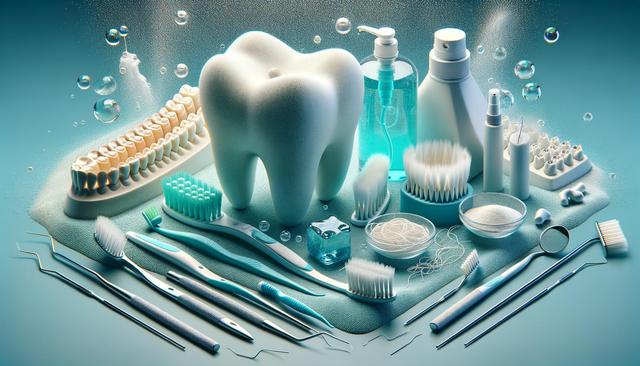Growing Demand in the Dental Field
One of the primary reasons more people are considering a career as a dental hygienist is the growing demand for preventative healthcare services. As oral health becomes more closely linked with overall wellbeing, the need for skilled professionals who can provide quality dental care is expanding. Dental hygienists play a crucial role in educating patients, performing cleanings, and supporting dentists in more complex procedures. Many individuals searching for a “Dentist Near Me” or trying to “Find Dentist Near Me” are also looking for practices that offer comprehensive care, which includes services provided by dental hygienists.
In addition to assisting with patient care, hygienists often take on responsibilities such as conducting initial assessments, applying preventive treatments like fluoride, and offering guidance on oral hygiene techniques. Their ability to work independently and in collaboration with dental professionals makes them integral to the success of any dental practice. This versatility is one of the key drivers behind the increased interest in dental hygiene programs.
Attractive Career Outlook and Salary Potential
Another compelling factor behind the surge in interest in dental hygiene programs is the career outlook and earning potential. According to data from multiple labor and employment sources, dental hygiene is consistently ranked among occupations with strong job growth projections. This is particularly appealing to those seeking stability and long-term career opportunities. Dental hygienists typically enjoy regular work hours, a clean and professional work environment, and competitive compensation.
While salaries can vary based on location, experience, and type of practice, the potential to earn a sustainable income with only an associate degree is a significant draw. Many students are attracted to the idea of entering the workforce sooner without the burden of extensive student debt. Additionally, dental hygienists often have the flexibility to work part-time or full-time, making it easier to balance work with personal commitments.
Educational Pathways and Program Accessibility
The educational journey to become a dental hygienist is relatively streamlined compared to other healthcare roles. Most accredited programs can be completed in about two to three years, and many community colleges and technical schools offer accessible pathways to certification. This makes it an appealing option for recent high school graduates, career changers, and adult learners alike.
Key components of most dental hygiene programs include:
- Courses in anatomy, physiology, and dental sciences
- Hands-on clinical training in real or simulated environments
- Licensing preparation and support
The relatively short duration of the program, combined with job placement support and high demand for graduates, makes dental hygiene an increasingly popular option among those exploring roles in the healthcare sector. For anyone looking to enter a respected, patient-facing career, enrolling in a dental hygiene program offers a practical and rewarding path.
Versatility and Advancement Opportunities
Dental hygienists enjoy a level of flexibility and versatility that is not always present in other healthcare careers. In addition to working in general dental offices, they may find opportunities in specialized practices, such as pediatric or periodontal clinics. Some even work in public health settings, schools, or research institutions. This variety allows professionals to align their work environments with their interests and lifestyle preferences.
For those who wish to advance their careers, options are available in education, administration, or sales within the dental industry. Hygienists may also choose to continue their education and become dental therapists or pursue degrees in public health or healthcare management. These opportunities for growth and specialization add to the appeal of starting a career in dental hygiene.
Additionally, hygienists often help patients understand procedures such as “Teeth Dental Implants” and other restorative treatments, strengthening their role as educators and advocates for oral health. Their ability to bridge the gap between patient and dentist enhances the overall care experience, making them essential members of any dental team.
Community Impact and Professional Satisfaction
Beyond practical benefits, many dental hygienists are drawn to the profession for the satisfaction that comes with helping others. Oral health significantly influences quality of life, and hygienists often play a vital role in early detection of issues and the promotion of healthy habits. Their work can lead to improved outcomes and reduced need for more invasive procedures, which is especially meaningful in underserved communities where access to dental care may be limited.
Dental hygienists regularly build strong relationships with patients over time, providing continuity of care and developing trust. This ongoing interaction helps create a more personalized, effective treatment experience and can greatly enhance job satisfaction. For individuals who enjoy working with people and making a tangible difference in their lives, dental hygiene offers an emotionally rewarding career path.
As more people use online tools to “Find Dentist Near Me” or inquire about services like “Teeth Dental Implants,” the visibility of dental hygiene professionals continues to rise. Their influence within the dental care system is expanding, and so is the recognition they receive for their contributions to patient health and wellbeing.
Conclusion: A Career Worth Exploring
With its combination of job security, meaningful patient interaction, and diverse opportunities for growth, dental hygiene stands out as a practical and fulfilling career choice. Whether you’re a student evaluating future possibilities or a professional considering a career shift, the field offers a compelling blend of personal and professional rewards. As demand for oral healthcare continues to increase, so does the need for skilled, compassionate dental hygienists ready to support both patients and dental teams. Exploring dental hygiene programs today can lead to a dynamic and impactful role in tomorrow’s healthcare landscape.




Leave a Reply